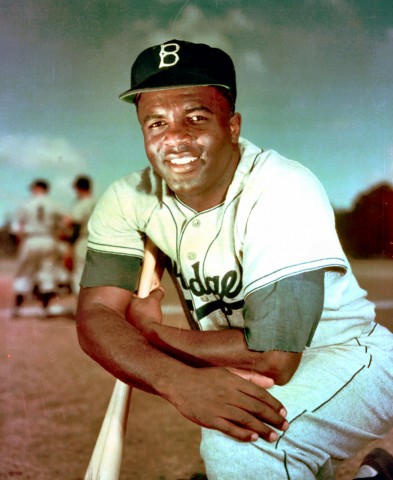Agree wholeheartedly.
.
The courage, dignity and class that Jackie Robinson showed was a big part of transforming our culture. Bill James had an eloquent set of comments on Jackie's baseball life:
.
Chapman's explanation was, "Sure, I called him all those things." Paraphrasing, but he said things like this. "Sure, I called him all those things. It's just the way it was. Southerners were harassed about being rednecks. Catholics took shit about being Catholic. Short players took crap about being short. Guys who weren't bright were called "Dummy" and "Stupido". Farmers were called "Rube". Jackie wasn't any different than anybody else."
.
Between 1947 and 1989, when Ken Griffey Jr. was a rookie, the nation moved together, in a bipartisan way, into the realization that we should treat others as we ourselves would want to be treated. Sports had an absolutely crucial role in America's transformation in this.
The tone and goals have moved away from "Do to others as you would be done by" and turned into something more akin to --- > exploiting 'microaggressions' for political advantage. These days we are less apt to ask, what would create the best country for ALL people to live in - rich/poor, male/female, minority/white - and more apt to ask, "How can this latest news event be leveraged to the advantage of some Hyphen American group?"
On TV, a guest was asked about the Steve Scalise shooting. Can we come together to reduce violence? Her reply, "He is a racist. I am a black woman first, and an American second." The result of that approach is not greater love and understanding, but greater conflict and anger. Jackie's goal was not the creation of a Black America and a White America. His goal was Martin Luther King's. Jackie led us toward a society of greater brotherhood, understanding, and love. He died with the knowledge that he had helped make America a better place to live. Will you and I be able to say the same?
Dr. D urges all Denizens to take a broader perspective. As the Dalai Lama has advised, "Your job is to live peacefully together." When our true motivation is "Do unto others as you would have done unto you," the happiness of all around us friend and foe, we can accomplish great things together.
The difference between Jackie Robinson's life and Ken Griffey's life, in terms of the peace each man enjoyed, was simply incredible. Which is why it is so noble for today's African-American athletes, and their white teammates, to wear the number 42 on Jackie Robinson Day.
Respectfully,
Jeff
